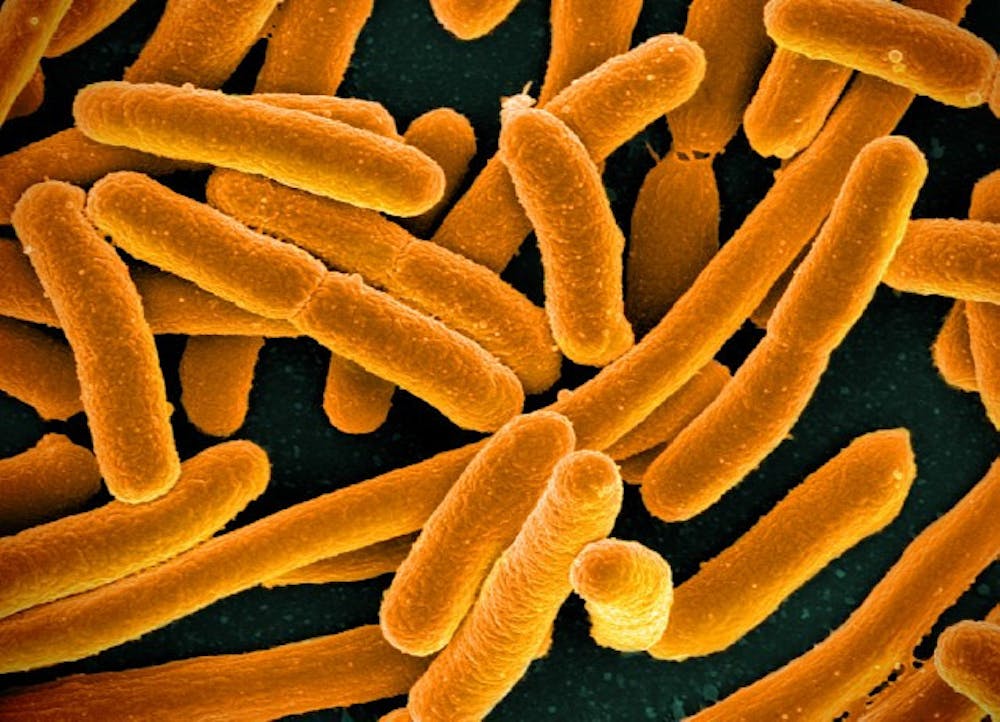
Research has been part of sophomore Ethan Posner’s life since high school, prompting him to dive deeper during his time at Hopkins. A Biophysics major, Posner is a member of the Fleming Lab, where he has investigated Outer Membrane Proteins (OMPs) for the past year and a half.
Posner is a Woodrow Wilson Fellow, which provides up to $10,000 in research funding for three years of an undergraduate’s career. This has enabled him to dedicate his summers to research, and he plans to present at conferences in the near future.
Before arriving at Hopkins, Posner studied neurodegenerative diseases at the New York Genome Center. His experience and the relationships he formed with his mentors there naturally led him to seek out research opportunities when he arrived at Hopkins.
“I got involved in September of my freshman year — really right away — and that was because of my previous positive experience with research in high school. I was really eager to get involved in research when I got on campus,” he said. “I searched through the labs in the Biophysics Department, and I really found the research [done by the] Fleming Lab to be very interesting. So, the first chance that I got, I reached out to them and was able to get a position in the lab.”
The Fleming Lab studies OMPs, proteins located on the outer membranes of Gram-negative bacteria, which perform a variety of tasks, including controlling what substances can enter or exit the cell. Posner began his research by investigating the functions of the BAM Complex — a multi-chain protein that folds and inserts OMPs into the outer membrane — and now focuses on SurA.
While not an OMP, SurA guides OMPs on their journey through the periplasmic space between the inner and outer membranes. The process from protein formation in the cytoplasm to insertion into the outer membrane is called the biogenesis pathway.
“The biogenesis pathway is essentially the means by which these outer membrane proteins are transported to the outer membrane and then inserted into it,” Posner explained. “OMPs are supported in their journey to the outer membrane by proteins that [guide them through] the periplasmic space. The specific protein [SurA] that I’m focusing on is called a chaperone. Chaperones bind to these outer membrane proteins to facilitate their journey.”
Posner’s work with SurA hopes to classify which OMPs it interacts with, the mechanisms behind these interactions, and how and why they occur. He hopes that a better understanding of the mechanisms behind OMPs could help develop new antibiotic therapies targeting the pathways being studied. It was this potential for a broader impact that drew him to the Fleming Lab.
Posner began studying SurA over the summer when he was given the opportunity to guide his own project and write his own protocols. This transition from following instructions to writing them brought new life to his work.
“I was able to learn a lot about biophysical lab techniques in my first project, which really made the transition to an independent project easier because I didn't have to relearn any techniques,” he said. “The big thing that I started to focus on more was planning out the next steps and writing out my own protocols — and that part was very exciting.”
Posner noted that a key aspect of learning to write protocols is understanding the quantity of research that has been conducted and the techniques that they employ. Most importantly, they must be written in a way that ensures that experiments can be reproduced and verified. He explained that this intuition is learned by reading published literature.
Given his role guiding his own project, Posner’s day-to-day lab work varies greatly, which is one of the aspects of research he most enjoys.
“One day, I can be running an SDS-PAGE gel, and another day I can be cloning. It can range anything from planning out experiments and protocols to being in the lab doing the protocols or analyzing the data. It's not the same thing every day; rather, it’s like a whole process that is continuously moving,” he said.
Looking to the future, Posner hopes to continue conducting research and is considering pursuing an MD-PhD. He expressed gratitude to his mentors — Karen Fleming and Barbara Amann — for cultivating his skills as a researcher.
“Research has allowed me to further my potential in terms of curiosity and exploration. It’s challenged my ability to think outside the box and about a diverse range of problems,” he said. “It also provides a kind of stability because no matter what time of the year it is, I'm always doing research. Even if my classes change, even if my other activities change, I always have research.”





